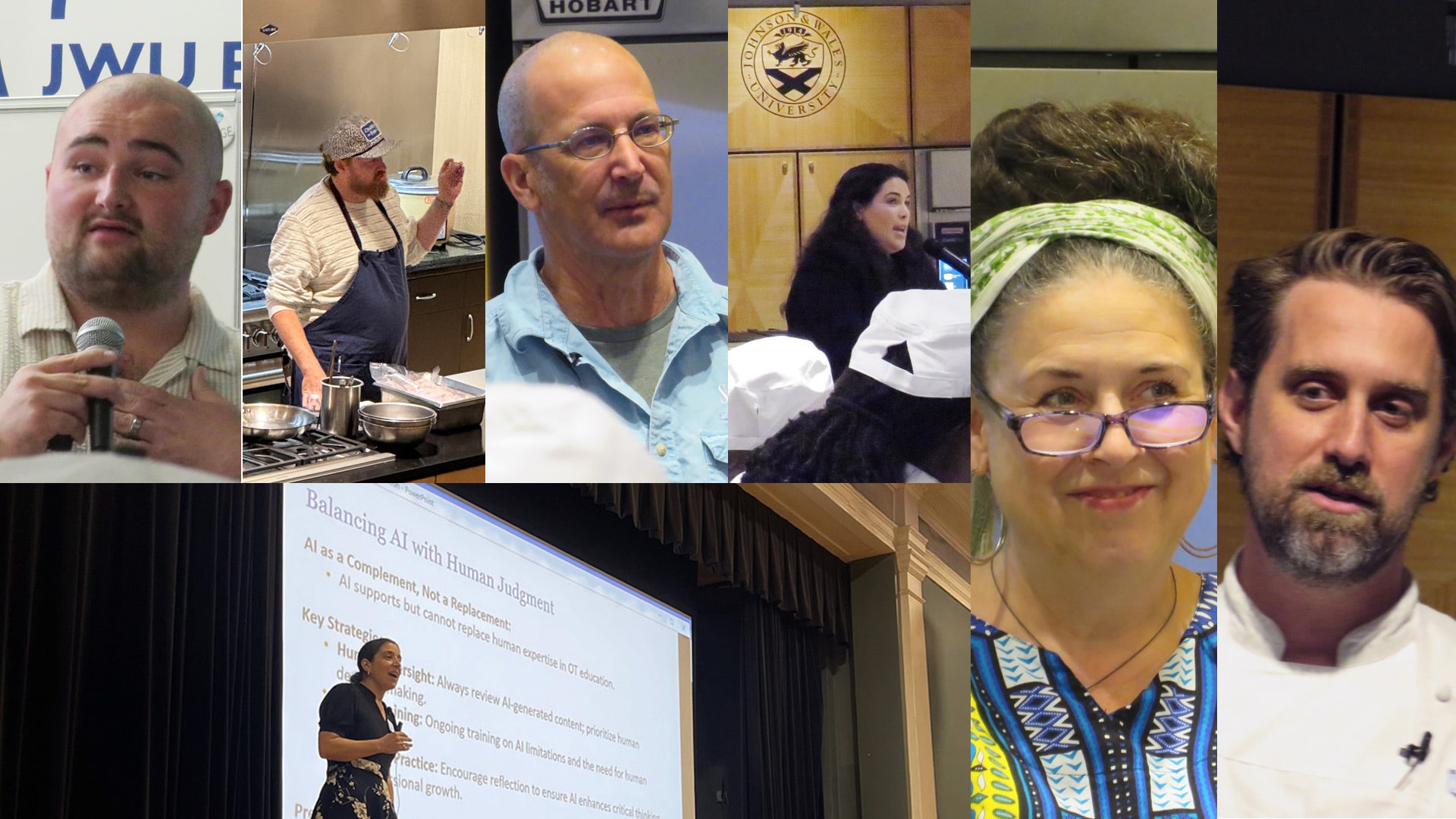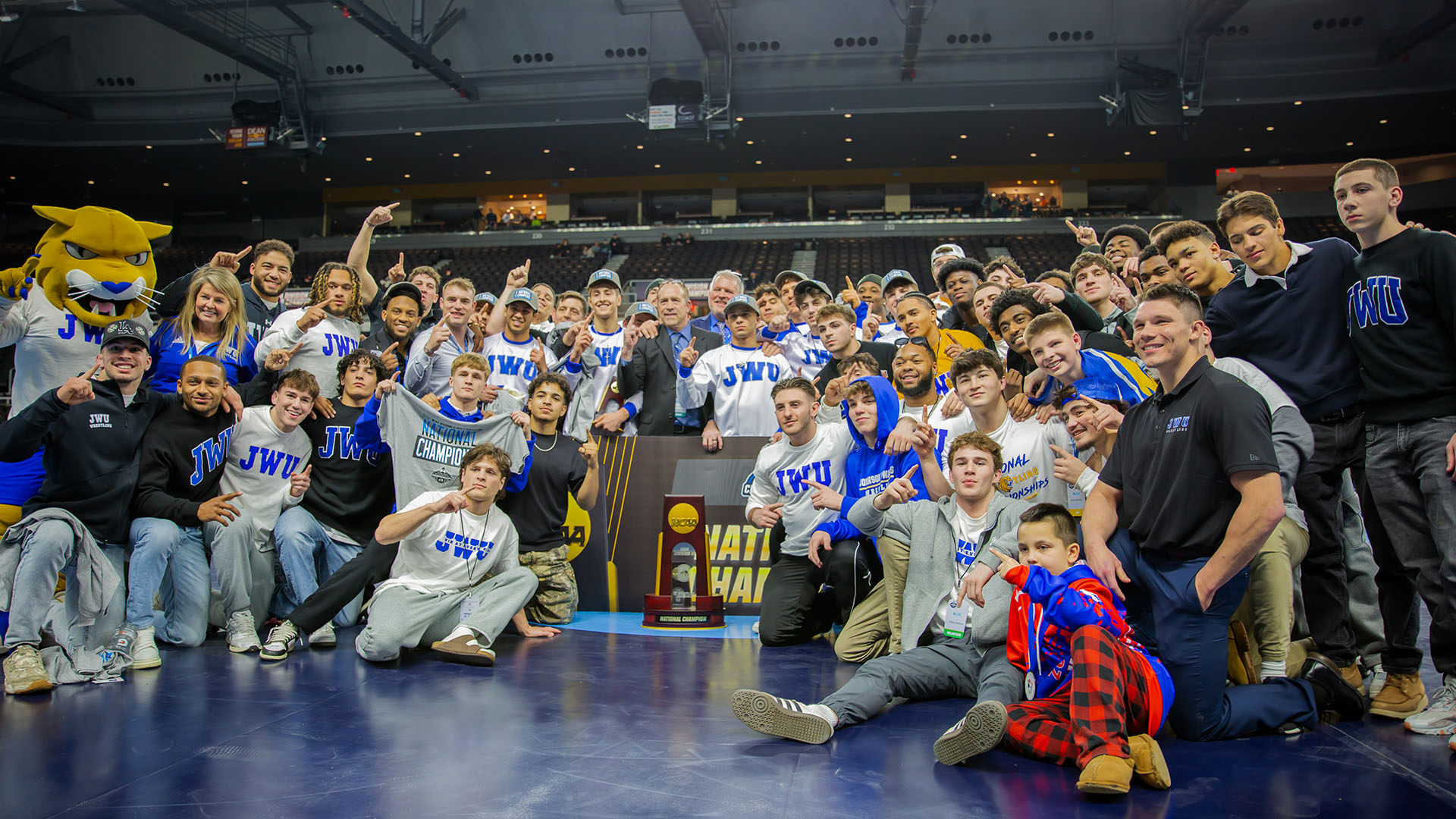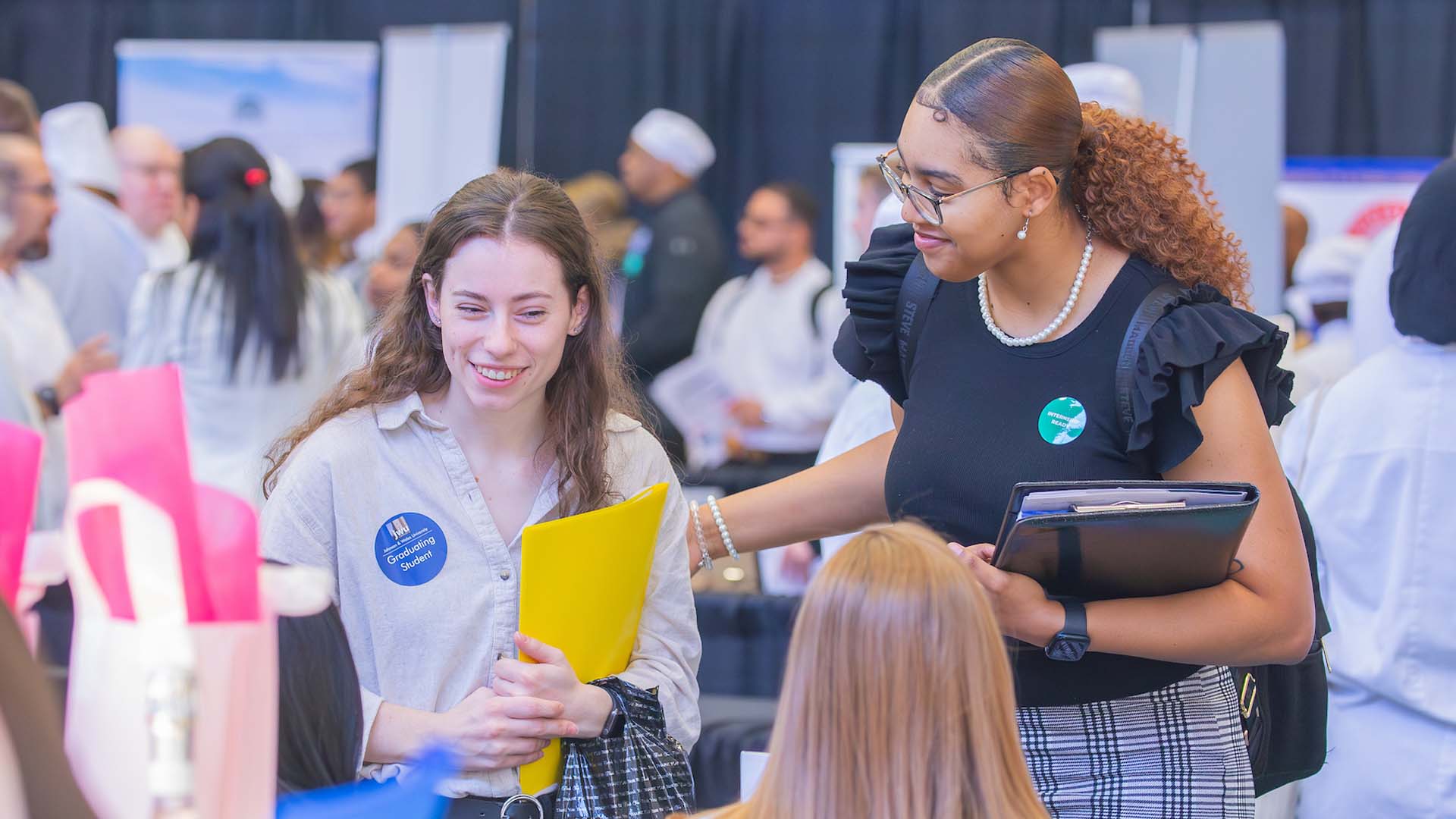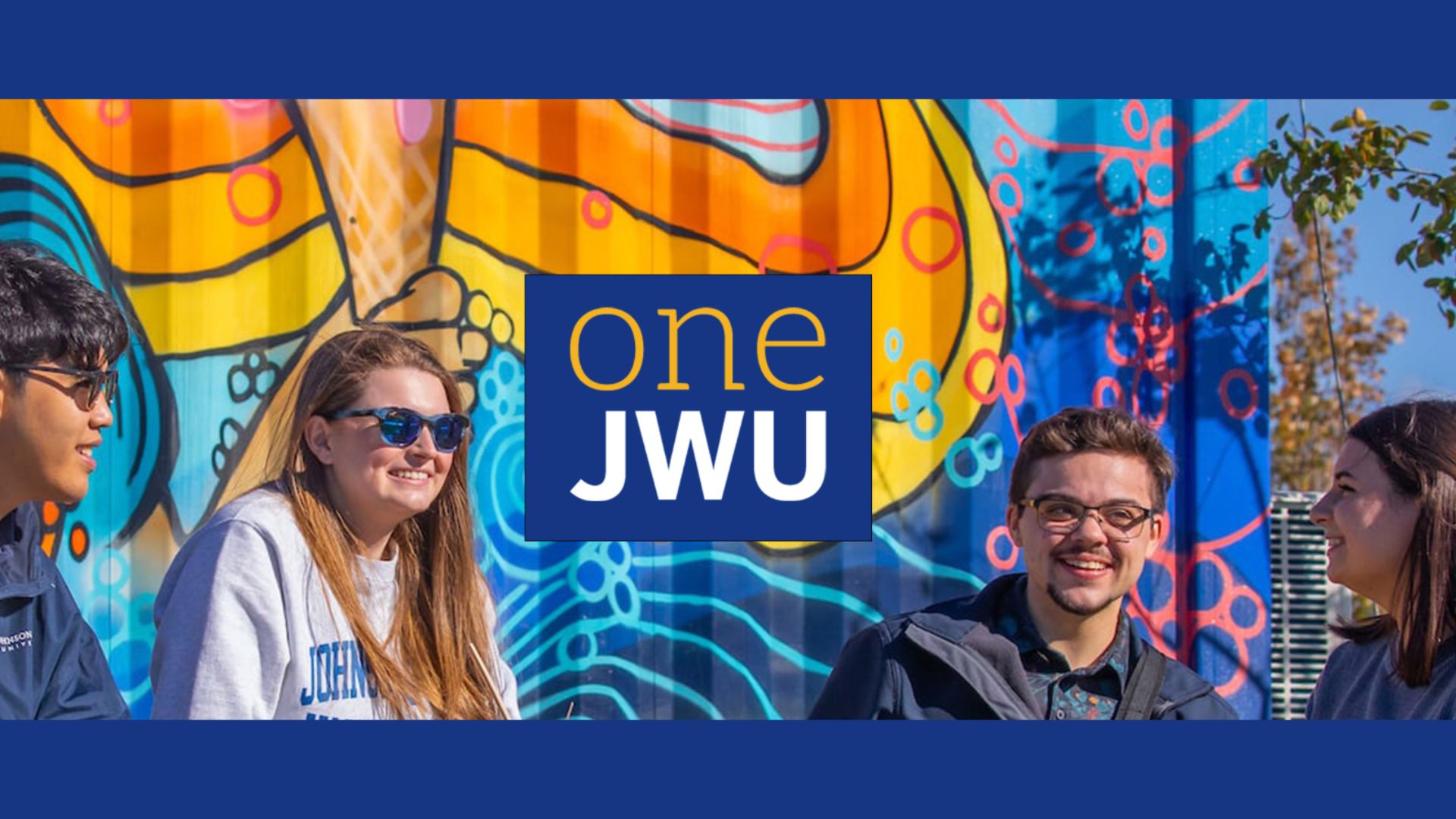7 Visiting Speakers' Advice on Careers, Sustainability and Advocacy
How do you best prepare for success and connect with future employers? How can you promote sustainability in sourcing food? How can you promote health equity?
And how can you start doing these things now?
Students have questions, and guest speakers at Johnson & Wales University events and summits have answers. We’ve collected seven experts' responses on how to create a sustainable food industry, how to sustain your business and your team, how to leverage AI in your work, how to promote health equity, what skills employers value, 5 steps to prepare for success, how to begin inclusive work, 5 ways to be an ally, how to engage with industry professionals and future opportunities and challenges for industry professionals.
From Owners to Scholars to Advocates, Meet Some Recent JWU Visiting Speakers
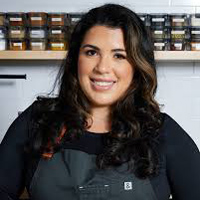 Maggie Pearson ’13 is the founder of Feast & Fettle, which was named in 2022 as one of the top places to work in the country. As a RATIONAL Speaker Series presenter, Pearson shared how her company has grown to 250 employees and a fleet of 60 vans delivering to tens of thousands of families across seven states, personally hand-delivering meals with “white gloves” rather than outsourcing them to be dumped on doorsteps.
Maggie Pearson ’13 is the founder of Feast & Fettle, which was named in 2022 as one of the top places to work in the country. As a RATIONAL Speaker Series presenter, Pearson shared how her company has grown to 250 employees and a fleet of 60 vans delivering to tens of thousands of families across seven states, personally hand-delivering meals with “white gloves” rather than outsourcing them to be dumped on doorsteps.
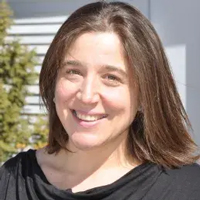 Tara Mansour, OT, OTD, OTR, is an assistant professor and academic fieldwork coordinator at the MGH Institute of Health Professions. She delivered the keynote, “Harnessing Generative AI in Higher Education,” at JWU’s Healthcare Summit in December 2024 to share results of her study on artificial intelligence (AI) use among occupational therapy students in intervention planning and to discuss how tools such as ChatGPT are contributing to patient care.
Tara Mansour, OT, OTD, OTR, is an assistant professor and academic fieldwork coordinator at the MGH Institute of Health Professions. She delivered the keynote, “Harnessing Generative AI in Higher Education,” at JWU’s Healthcare Summit in December 2024 to share results of her study on artificial intelligence (AI) use among occupational therapy students in intervention planning and to discuss how tools such as ChatGPT are contributing to patient care.
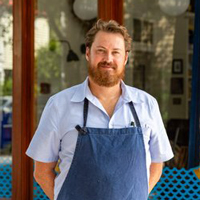 James London is executive chef and owner of Chubby Fish, a Best Chef Southeast 2024 James Beard finalist dock-to-table seafood concept in Charlestown, South Carolina that Food & Wine Magazine ranked the #7 Restaurant in the United States. Chef London shared his story and answered student questions at JWU Charlotte’s RATIONAL Speaker Series — including demonstrating how to make Hainanese turkey that attendees reported was “very tender, flavorful and delicious.”
James London is executive chef and owner of Chubby Fish, a Best Chef Southeast 2024 James Beard finalist dock-to-table seafood concept in Charlestown, South Carolina that Food & Wine Magazine ranked the #7 Restaurant in the United States. Chef London shared his story and answered student questions at JWU Charlotte’s RATIONAL Speaker Series — including demonstrating how to make Hainanese turkey that attendees reported was “very tender, flavorful and delicious.”
 Daniel Fitzgerald, M.P.H., ICPS, serves as director of advocacy and state public policy for Rhode Island and Massachusetts. At the American Lung Association, Fitzgerald’s mission is a world free of lung disease — so he commended JWU for being Rhode Island’s only 100% tobacco-free campus — but he also works tirelessly to help disarm prejudice and to open communication. JWU’s Health Equity Club invited him to share his expertise in inclusive programming.
Daniel Fitzgerald, M.P.H., ICPS, serves as director of advocacy and state public policy for Rhode Island and Massachusetts. At the American Lung Association, Fitzgerald’s mission is a world free of lung disease — so he commended JWU for being Rhode Island’s only 100% tobacco-free campus — but he also works tirelessly to help disarm prejudice and to open communication. JWU’s Health Equity Club invited him to share his expertise in inclusive programming.
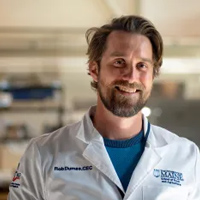 Rob Dumas is the food science innovation coordinator at the University of Maine while also managing two commercial food production facilities that serve as research, education and support facilities for food producers. He is also a certified executive chef through the American Culinary Federation and a U.S. Navy veteran who served on nuclear submarines and at the White House for the Obama family.
Rob Dumas is the food science innovation coordinator at the University of Maine while also managing two commercial food production facilities that serve as research, education and support facilities for food producers. He is also a certified executive chef through the American Culinary Federation and a U.S. Navy veteran who served on nuclear submarines and at the White House for the Obama family.
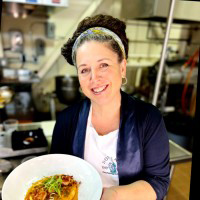 Fisheries manager, fishmonger and “scallop evangelist” Togue Brawn has worked with or within Maine’s commercial fishing and seafood industry for over 30 years and helped reform Maine’s scallop fishery management program. She serves on the New England Fishery Management Council, chairs Maine’s Marine Resource Advisory Panel and is a member of the Maine Fishermen’s Forum Board of Directors.
Fisheries manager, fishmonger and “scallop evangelist” Togue Brawn has worked with or within Maine’s commercial fishing and seafood industry for over 30 years and helped reform Maine’s scallop fishery management program. She serves on the New England Fishery Management Council, chairs Maine’s Marine Resource Advisory Panel and is a member of the Maine Fishermen’s Forum Board of Directors.
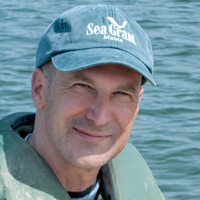 Dana Morse, senior extension program manager and aquaculture lead for the Maine Sea Grant College Program and the University of Maine Cooperative Extension, manages educational programming, technology transfer and applied research. Morse serves as a technical resource for populations including shellfish producers, fishermen, scientists and regulators.
Dana Morse, senior extension program manager and aquaculture lead for the Maine Sea Grant College Program and the University of Maine Cooperative Extension, manages educational programming, technology transfer and applied research. Morse serves as a technical resource for populations including shellfish producers, fishermen, scientists and regulators.
Creating a Sustainable Food Industry
There are always ways to be sustainable, even in food industries known for packaging. For instance, Pearson ensures that Feast & Fettle’s customers can return ice, insulated bags and containers, which get recycled through TerraCycle® as a closed-loop system. Thanks to a partnership with Good Neighbors, any unused food is brought to a food pantry.
Meanwhile, at Chubby Fish, London lets almost nothing go to waste. “Learn how to use all of something,” he advised, explaining how a whole fish can be used rather than just its fillet. “Fish cheeks and trims can be used in fish cakes or stew, while heads, fins and bones can go into a stock.”
Dumas, Brawn and Morse promote aquaculture and wild fisheries as an antidote to food sustainability challenges. Scallops grown in small farms and harvested by generational fishing families in Maine have low environmental impact, are well-managed with strong regulatory oversight and require no land or freshwater use. In the past, shellfish had been overfished, with no meaningful measures to bring them back. “They’re sedentary, and they could come back if we just leave them alone,” Brawn explained.
Brawn had to get fishermen on board — she knew that strong relationships with small producers ensure a reliable food supply — and get Maine’s legislature to sign off on any changes to the fishing industry. Closing off areas for scallops to grow helped Maine evolve to sustainably produce ten times as many scallops today as in 2007.
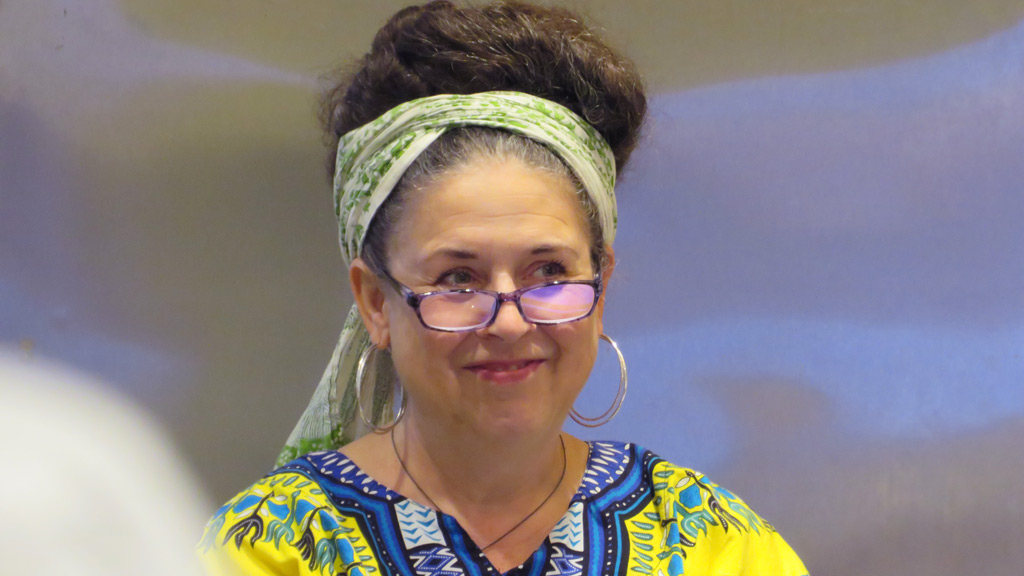
Most American fishermen allow scallops to gain water weight from being stored on ice, sometimes for weeks while out at sea, which dilutes the taste and the product. Thanks to the efforts of advocates like Brawn, Dumas and Morse, Maine’s scallops are only harvested within three miles from shore. The scallops never touch ice, and their quality and taste are superior to scallops caught elsewhere. “I want the American audience to understand just how good scallops can be,” Brawn stated. “And I want you to demand better seafood.”
Attendees sampled scallops, both raw and sautéed by Dumas, that were freshly harvested by Josh Todd, an 11th-generation fisherman from Maine.
“In your careers, you’ll have influence over food — what consumers think of it and what you serve — and that’s a lot of power to have,” Dumas explained. “Sometimes food has a hidden cost, and in shellfish aquaculture, we can produce protein with no inputs. We put baby shellfish in the water, and they feed on what’s already there and have a positive impact on their environment, improving the water; it’s carbon-neutral and possibly even carbon-negative. It’s some of the most sustainable food on earth.”
“Your inventiveness in how we can use scallops in new ways other than how they’ve traditionally been used in the United States is going to be invaluable,” Morse told JWU’s future chefs. He explained that many only eat the abductor muscle, which contracts to keep the shell closed against predators and makes it able to swim away from bad weather. “That’s only about 16% of the scallop’s whole body weight,” he noted. “You’re throwing 84% overboard.”
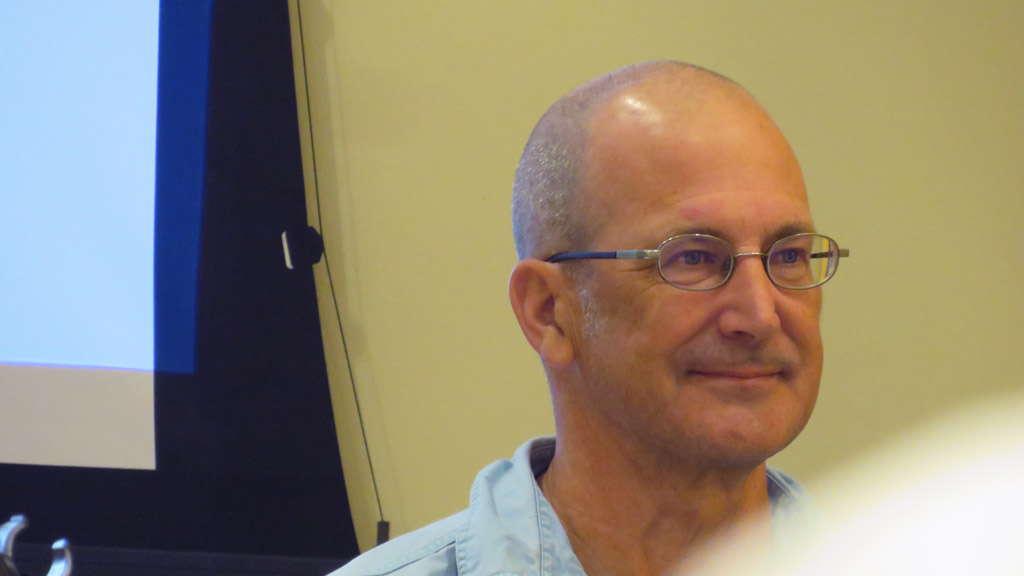
Instead, people should harvest more tissue in the form of the gonad, which doubles the scallop’s value; in France, for instance, it’s made into a delicacy called coquilles Saint-Jacques. “Americans have pretty bland palettes, but the rest of the world eats other parts of the tissues,” Morse said. “We have a chance to develop and interpret new products and use more of the animal. The products farmers are putting out there allow you as chefs to do something different with an ingredient that’s not available anywhere else in the country. I ask you to go be creative!”
How to Sustain Your Business — And Your Team
“You have to love the idea of what you’re doing, because no one is going to care as much as you,” Pearson shared with JWU students. “You need a critical eye so you’re always trying to improve. Our motto that’s literally on the wall at Feast & Fettle is ‘make it better’.”
She has built a strong team to handle finances and logistics while she creates menus and writes recipes. “It’s critical to communicate respectfully with your founders, business partners, members, employees, purveyors, distributors — everyone,” Pearson advised. “And always be adaptable. We have constant challenges given the size of the business, and we need to think critically and be solution-based to meet them all.”
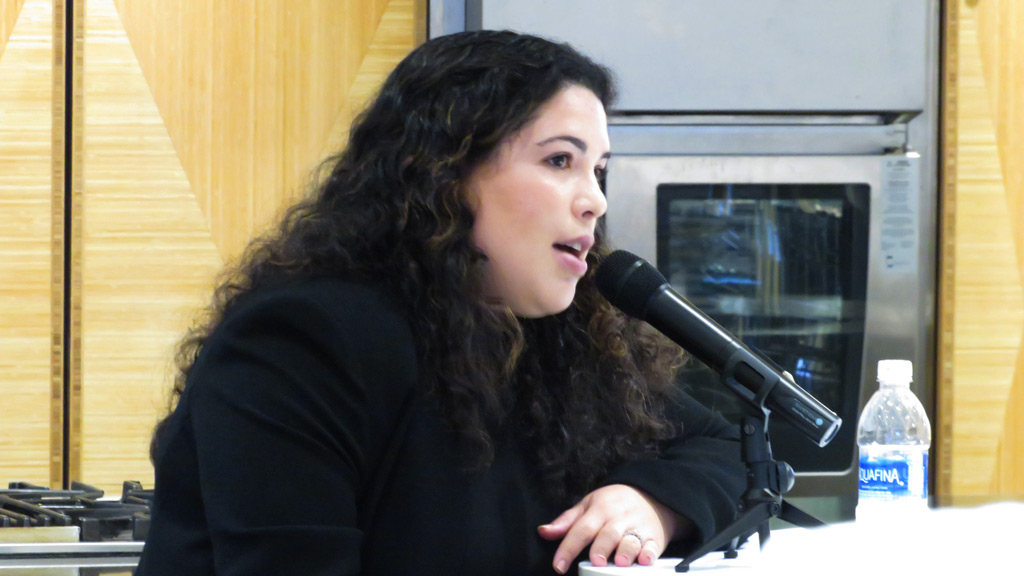
Rather than managing day-to-day operations, Pearson considers herself a cheerleader for others, noting, “It’s empowering for our leadership team to do what they need to do without being told.”
“Make sure that you’re your biggest fan and believe in your vision,” advised the JWU alum. “You have to be your biggest supporter. The hours are long at the beginning and even when you eventually can be there less, you’re always thinking about it. You can never turn it off — and you shouldn’t want to turn it off.”
London has had a similar experience building the team at his hit restaurant, Chubby Fish. “You don’t want to be the smartest in the room,” he cautioned. “Your team and the quality of your product are the two most important factors in the culinary business. Paying more is worth it to get the best, whether that is employees or ingredients. Look for good people to hire.”
When asked about working with people who may be difficult to get along with, London advised students to keep the common goal in mind: everyone is on the same team and looking to provide an excellent experience.
How to Leverage AI in Your Work
Mansour studied future occupational therapists’ use of artificial intelligence (AI) to brainstorm intervention strategies in healthcare. Her study found an 88% increase in occupational therapy (OT) students’ comfort levels when using ChatGPT for planning interventions as well as a stronger understanding of ethical and safety considerations related to AI use. She found that AI contributed to efficiency in brainstorming and timesaving for preliminary research and administrative tasks like emails and summaries. But the study also exposed some limitations and a need for critical evaluation skills.

Overall, the students in Mansour’s study expressed strong interest in using ChatGPT for fieldwork, administrative tasks and research beyond clinical planning, and she was able to present to JWU students how that could look in their future careers.
“Generative AI equips OT professionals and students with cutting-edge tools,” she noted. “The study shows that it emphasizes safe, ethical and effective AI use in healthcare. But overall, generative AI is a tool, and its impact depends on us — and on our thoughtful, ethical use of it.”
How to Promote Health Equity
Students in health-related fields will need to be aware of unique challenges for underserved populations, Mansour noted, and diversity, equity and inclusion offer a way to impact underserved populations and address systemic health disparities. Fitzgerald dove deep into how that can work. He shared findings that high school substance use, victimhood of violence and suicide rates in the U.S. were up to four times higher among those who identify as gay, lesbian and bisexual. Fitzgerald noted, “We have to dive into the ‘why.’ Use an intersectional lens, and don’t ignore that people can fall into multiple categories. People need to feel safe to disclose health details to their providers; be the caring people in their corner.”
To promote health equity, Fitzgerald opposes any legislation that leaves anyone behind. “As you go into a policy space or are just an advocate, understand that we need to have someone to say that if we’re leaving folks behind, it’s not good enough,” he advised students. “Exclusionary practices in healthcare, banning trans athletes in sports and more are happening in every corner of our country. They may not look like public health issues, but they are.”
How to Build a People-First Health Strategic Framework
JWU students planning for careers in health spheres can build a LGBTQIA+ health strategic prevention framework in five steps: assess needs, build capacity, plan, implement and evaluate.
“It’s cyclical in nature and constantly evolving,” Fitzgerald noted, advising, “Make sure to take time to really assess deeply and be sure we’re all at the same level of readiness and training. We use a phrase, ‘nothing about us without us,’ to remind us to engage all populations. And everything we do should include sustainability and cultural competence.”

He also addressed a tenet of healthcare education at JWU: centralizing humans. “Years ago, I was working at a state department in behavioral healthcare and found how quickly data became numbers on a page,” he revealed. “It was just notifications coming in until I recognized the name and address of a former classmate. Data can be powerful but also hurtful, so remember there is always a human face behind the numbers.”
What Skills Employers Value in Future Employees
Maggie Pearson ’13: “I truly value creativity, adaptability and strong communication skills in recent graduates. The ability to think creatively to solve problems, adapt to new situations and effectively communicate ideas is critical in most industries.”
Tara Mansour: “As an academic fieldwork coordinator and former clinical supervisor, I highly value professional behaviors such as adaptability, critical thinking, effective communication and a proactive attitude. The ability to engage in clinical reasoning, ask thoughtful questions, and respond positively to feedback is crucial”
“I also look for resilience and the capacity to work effectively as part of a team, especially in dynamic or challenging environments,” she added.
James London: “The skill that I value most in recent graduates is a willingness to learn and a humble attitude. “Cooking is fun, and you get to learn something new every day. You will never know it all. It’s a great position to be in.”
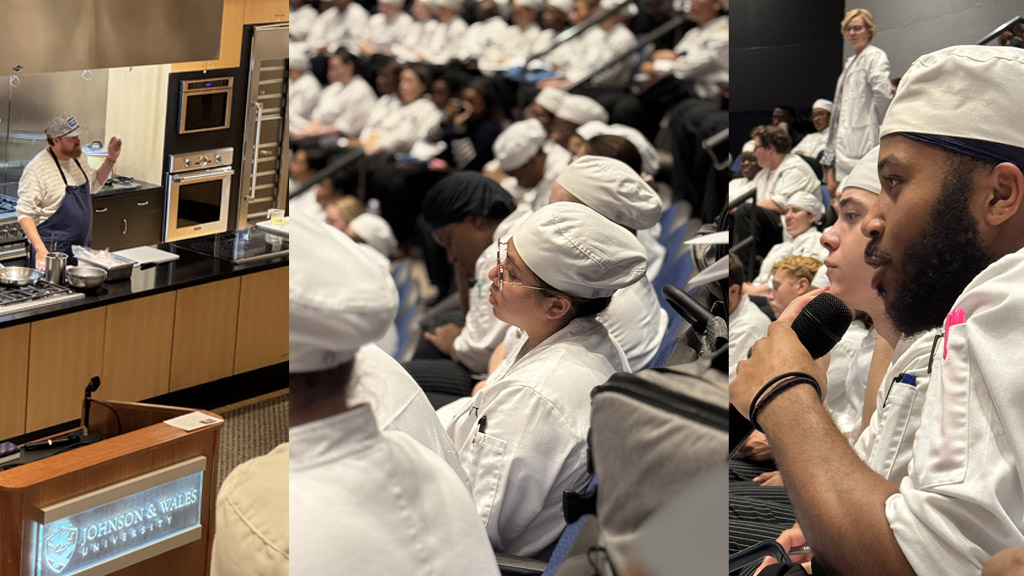
Rob Dumas: “I think that the most valuable skill a new employee can bring is a willingness and desire to continue learning. Curiosity and passion can't be taught, and they require intentional cultivation by a person. I would add that what sets an average cook apart from a great cook is attention to detail.”
“And there is no experience like the real world,” he added. “I believe that a well-structured internship program and experiential learning opportunities are key to creating a graduate that can leverage their book knowledge into practice.”
5 Steps to Prepare for Success
- Embrace discomfort: Growth happens when you step outside your comfort zone, especially during fieldwork. Seek opportunities that challenge you.
- Develop self-awareness: Reflect on your strengths, areas for growth, and how you respond to stress or feedback.
- Master time management: Stay organized with assignments, clinical responsibilities, and personal goals.
- Practice professional communication: Build confidence in how you interact with colleagues, clients, and supervisors.
- Engage in lifelong learning: Stay curious and seek opportunities to enhance your skills, even after graduation.
How to Begin Inclusive Work
“I challenge that any job you find yourself in is an opportunity to advocate for others,” noted Fitzgerald.
When asked by a student how to engage people who “see us as evil,” he responded, “Storytelling is one of the most powerful things we can do — but also calling in our public health partners and allies. Until we started talking about it, people weren’t aware of ongoing challenges.”
He identified multiple ways to be inclusive: “Sometimes it’s handing out flyers and answering tough questions. Sometimes it’s creating an age-appropriate graphic novel about students and their struggles. Sometimes it’s educating faith leaders and school administrators and folks working in classrooms to ensure that all are safe folks to approach. Sometimes it’s going to the State House to ensure no one’s left behind in policy. Sometimes it’s asking youth directly about their experiences. And sometimes it’s gathering people together to go for a hike or break bread at a meal; those all lead to shared experiences.”
5 Ways to Be an Ally
Fitzgerald’s five ways to help others:
- Educate yourself. This means broadening your worldview through ongoing education and being open to experiences and people.
- Listen and amplify. Listen to others’ experiences, believe them — and don’t overshadow them.
- Shut down “jokes.” Silence is compliance, so step up to microaggressions and macroaggressions.
- Change your behavior. If you have made mistakes in how you perceive or treat others, own up, apologize and change your behaviors moving forward.
- Advocate for others by getting involved. Be present, ask, listen, understand, speak up, take action and always encourage.
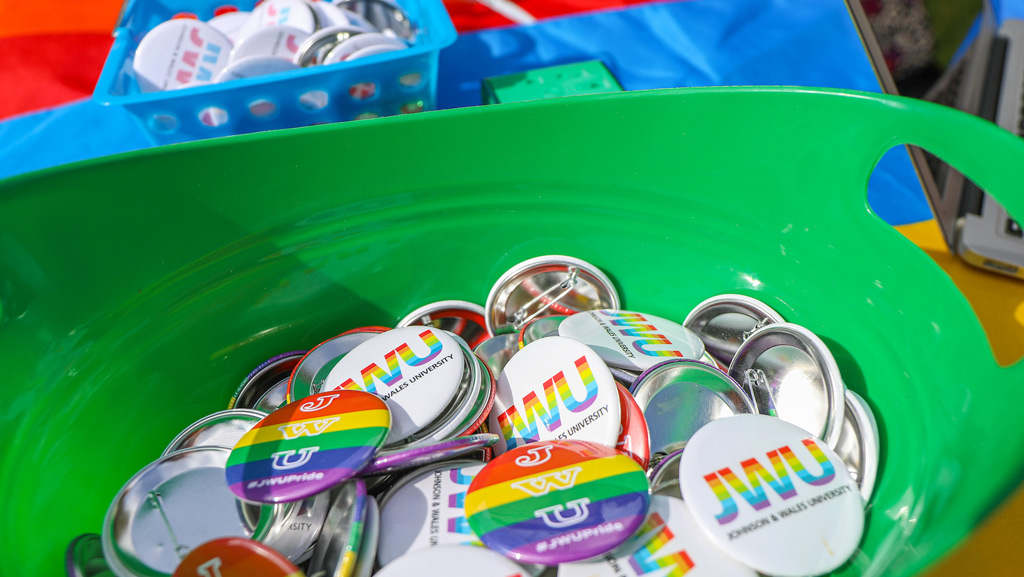
“This could mean showing up with sign or taking a loved one’s hand,” he explained. “But really any situation where you can give people an opportunity to use moments as one-on-one learning experiences.”
How to Engage with Industry Professionals
James London: “Staging in a kitchen that you respect is the best way to gain a ton of experience in a very short amount of time," London noted. "You can email a list of restaurants that you’d like to check out, tell them about yourself and let them know that you would like to come in and stage with them for a night. Don’t get discouraged if not every email leads to instant gratification. Sometimes you will get no response — but when you do, these short experiences can be some of the most valuable lessons you will receive.”
“Nothing beats on-the-job training,” London added. “Internships are where you get your foundation for the rest of your career. Make sure you pick a spot that will set you up for the style of food service that you want to go into.”
Maggie Pearson ’13: “I really appreciate the emphasis that JWU places on experiential education. Hands-on experience is something students should prioritize as a way to build meaningful connections with organizations and industry professionals. I would encourage students to take the initiative to reach out to industry professionals and alumni via LinkedIn or social media for informational interviews or to inquire about potential positions.”
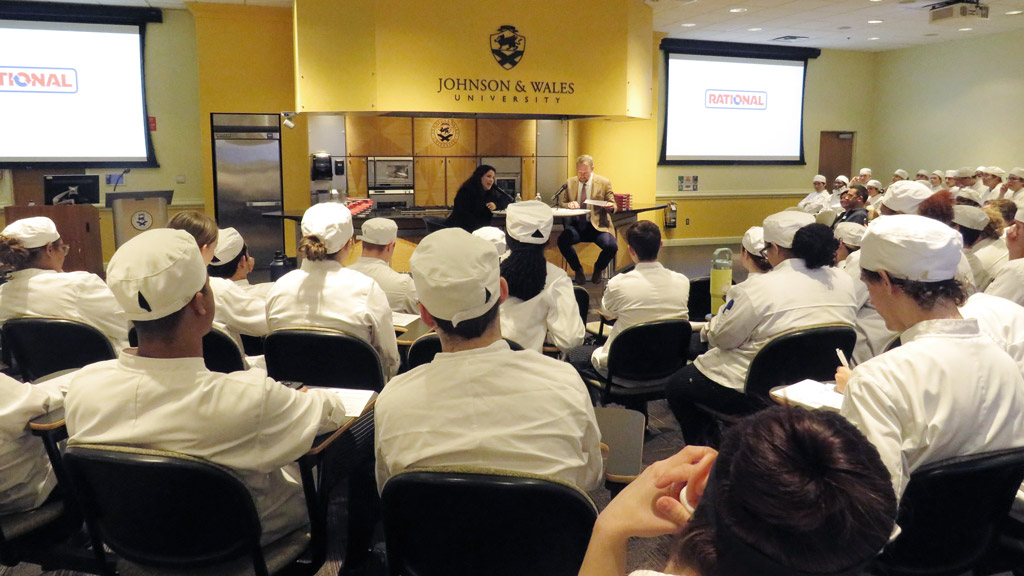
“Students can position themselves for success by seeking out meaningful internships and engaging in industry-focused networking opportunities,” she added. “These experiences will not only help build essential skills but also foster valuable connections within their prospective fields.”
Rob Dumas: “I would encourage students to introduce themselves to presenters and ask if it is ok to connect via email or social media networks like LinkedIn. Speaking events are often very busy, and it can be hard to have a meaningful conversation when many people are vying for your time.”
Tara Mansour identified five ways students can be proactive, engage in mentorship, collaborate on projects, demonstrate curiosity and seek feedback:
- Reach out to faculty members with specific questions or interests. Don’t hesitate to ask for guidance on career paths, research opportunities, or professional development.
- Take advantage of office hours, advising sessions, and informal discussions to build a supportive mentorship relationship.
- Look for opportunities to contribute to research or state or national presentations and conferences, as these experiences can deepen their understanding of the profession.
- Ask thoughtful questions during classes or workshops to show your engagement and willingness to learn.
- Use assignments, clinical debriefings, and evaluations as opportunities to gain insight into their strengths and areas for growth.
How Universities Like JWU Can Better Partner with Employers
To ensure that we’re setting our students up for success, JWU continually seeks advice from experts, too — such as how we can better partner with organizations and companies that will hire our graduates. All the visiting speakers praised JWU’s longstanding experiential education focus, but what else can JWU do?
“Universities can build stronger partnerships by fostering open communication and mutual understanding between academia and clinical practice,” advised Mansour. “This includes regular feedback loops, tailored training, clinical educator support and pipeline programs.”
4 ways presenters suggest universities can help make those happen:
- Host advisory boards or collaborative meetings with clinical partners to gather insights on industry trends and employer expectations.
- Offer workshops or courses aligned with the specific skills needed in high-demand areas, such as telehealth, documentation, or generative AI in clinical practice.
- Provide training for clinical supervisors to better equip them to mentor students, ensuring consistency in expectations across placements.
- Create pathways where students can transition directly into employment with clinical partners who have invested in their training.
Future Opportunities and Challenges for Emerging Industry Professionals
Maggie Pearson ’13: “I see tremendous opportunities for innovation, particularly with the rise of technology and AI in food production and delivery services. However, this constant influx of new technology also presents challenges, such as the need to stay current with the tools available to streamline operations — especially those related to AI — while keeping ahead of trends and competition in a crowded market.”
“New professionals should embrace the mindset of continuous learning and be open to adapting to changes in technology and consumer preferences as they relate to the industry,” Pearson added.
Rob Dumas: “The world is rapidly changing, and as a new professional it will be important to leverage new technologies while still remaining true to the craft of cooking. The soul of cuisine is the people who prepare it, and while tech is something we can leverage, we can't remove the love from preparing food for another person. Cooking is an act of gracious humanity and should be sacrosanct.”
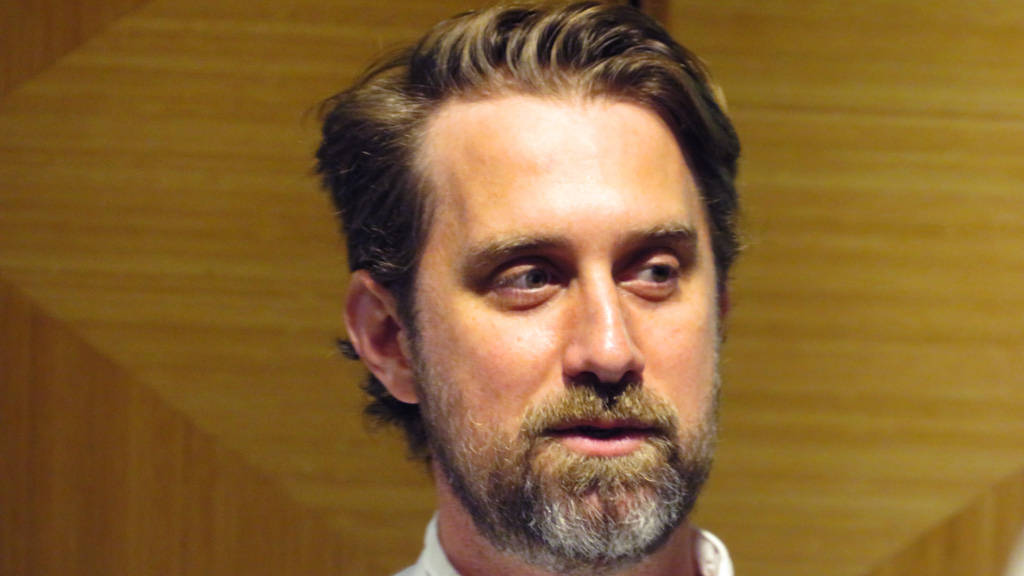
James London: “When I first started in this industry, there were not that many avenues for cooking. You could be a chef, a restaurant owner or a dietician. Now there are so many paths to go down. Many restaurant gigs are cushy these days, with workers’ rights having improved in recent years. It’s never been a better time to be a line cook.”
Tara Mansour: “The field of occupational therapy continues to evolve toward technology integration, emerging practice areas, interprofessional collaboration and global perspectives. From telehealth to AI-driven solutions, there is growing potential to enhance patient care through innovation. Opportunities are expanding in fields like mental health, community health, and preventative care. Increasing emphasis on team-based care allows new professionals to work closely with other disciplines, broadening their skill sets.”
She also recognized future challenges: workplace demands, balancing clinical and administrative tasks, and navigation change. “Burnout is a concern,” she noted. “Resilience and self-care strategies will be critical. New professionals must be prepared to navigate productivity standards while maintaining quality care. And as regulations, technology, and patient needs evolve, new practitioners must remain adaptable and committed to lifelong learning.”
“To thrive, new graduates must embrace these challenges as opportunities to grow, demonstrating both technical and interpersonal excellence,” Mansour concluded.
